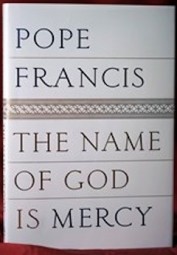January 11 | ![]() 0 COMMENTS
0 COMMENTS ![]() print
print

Pope looks at his family’s and the Church’s struggle in new book
Holy Father urges Christians to ‘overcome prejudice and rigidity’ in The Name of God is Mercy
Pope Francis describes his own family’s struggles with Catholic teachings in a new book.
As part of the Catholic Church’s Year of Mercy, the Pope has released a new book The Name of God is Mercy which describes the Church’s struggles in the 21st century and urges Christians to ‘overcome prejudice and rigidity.’
“The Church does not exist to condemn people but to bring about an encounter with the visceral love of God’s mercy,” the Pope said before calling on conservative critics within the Church to let go of ‘pre-conceived notions and ritual purity’ and ‘be surprised by reality.’
The book takes the form of an extended conversation with Italian journalist Andrea Tornielli where the Pope described encounters with people in prison. “Every time I go through the gates into a prison to celebrate Mass or for a visit, I always think: Why them and not me?” the Pope writes. “I should be here, I deserve to be here. Their fall could have been mine.”
Throughout the book, the Pope touches on the divisive issue of allowing remarried Catholics to receive Holy Communion and described how his niece grappled with this situation when she married a divorced man.
“Every time I go through the gates into a prison to celebrate Mass or for a visit, I always think: Why them and not me?”
He also elaborates on his ‘Who am I to judge?’ remarks on homosexual Catholics he made following his election in 2013, adding that the Church should help them ‘stay close to the Lord.’
“Before all else comes the individual person, in his wholeness and dignity,” he writes. “And people should not be defined only by their sexual tendencies: let us not forget that God loves all his creatures and we are destined to receive his infinite love.”
The Pope compares the modern mercy-filled Catholic Church to a field hospital.
“It exists where there is combat, it is not a solid structure with all the equipment where people go to receive treatment for both small and large infirmities,” he writes. “It offers first aid and immediate care, so that its soldiers do not die.”










